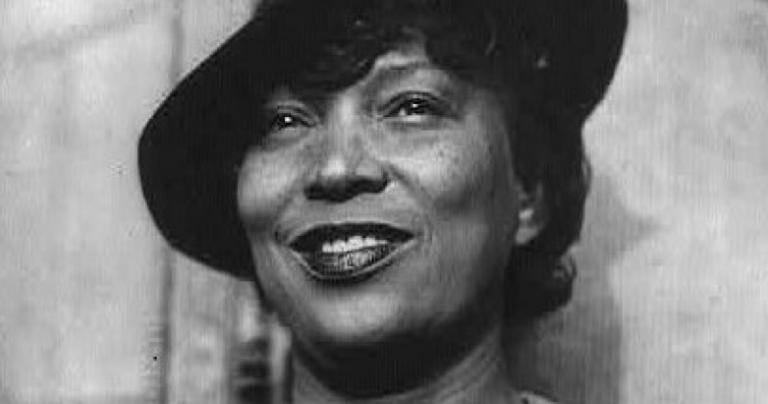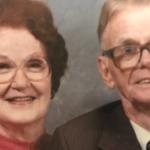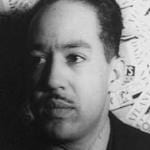 To have a life to live, joy to share, only to be stifled by injustice, sometimes from the ones who love you, is hard, but life and joy can still be, even if only for a time. Their Eyes Were Watching God shows a human being, an African-American woman, finding a way. Hurston herself was able to do important work in anthropology and write novels, so she had no trouble keeping two injustices firmly at the front of the novel
To have a life to live, joy to share, only to be stifled by injustice, sometimes from the ones who love you, is hard, but life and joy can still be, even if only for a time. Their Eyes Were Watching God shows a human being, an African-American woman, finding a way. Hurston herself was able to do important work in anthropology and write novels, so she had no trouble keeping two injustices firmly at the front of the novel
African-Americans in Jim Crow America were limited by race, but African-American women faced further limitations based on sex. As one character in Their Eyes Were Watching God puts it:
Maybe it’s some place way off in de ocean where de black man is in power, but we don’t know nothin’ but what we see. So de white man throw down de load and tell de n- man tuh pick it up. He pick it up because he have to, but he don’t tote it. He hand it to his womenfolks. De n- woman is de mule uh de world so fur as Ah can see. Ah been prayin’ fuh it tuh be different wid you. Lawd, Lawd, Lawd!”
The grandmother who speaks these words ends up limiting her granddaughter, selling her into a hard, loveless marriage, for security. The complexity of the novel is that while the reader might sympathize with the grandmother’s decisions, she has faced backbreaking labor to provide for her granddaughter Janie, Janie does not:
Here Nanny had taken the biggest thing God ever made, the horizon—for no matter how far a person can go the horizon is still way beyond you—and pinched it in to such a little bit of a thing that she could tie it about her granddaughter’s neck tight enough to choke her. She hated the old woman who had twisted her so in the name of love.
Janie does find love and does venture toward a horizon and what follows is sad, but not tragic, because Janie becomes fully human. She does not need a man or white skin to be a person: she is a person with choices. Consent is shown as necessary to humanity. The right to choose over against other humans’ desires is a fundamental human right and it is denied often in the story: African-Americans are forced to hard labor by white men and women are forced to be less than they could be: not allowed story telling on the porch, checkers, shooting, or independence.
Does God also deny choice? What is God doing in the face of such much injustice?
She looked hard at the sky for a long time. Somewhere up there beyond blue ether’s bosom sat He. Was He noticing what was going on around here? He must be because He knew everything. Did He mean to do this thing to Tea Cake and her? It wasn’t anything she could fight. She could only ache and wait. Maybe it was some big tease and when He saw it had gone far enough He’d give her a sign. She looked hard for something up there to move for a sign. A star in the daytime, maybe, or the sun to shout, or even a mutter of thunder. Her arms went up in a desperate supplication for a minute. It wasn’t exactly pleading, it was asking questions. The sky stayed hard looking and quiet so she went inside the house. God would do less than He had in His heart.
God would do less than He had in His heart.
This is, perhaps, a brilliant theodicy. Having given individual humans free will, God allows humans to choose, even badly. God is limited by God’s gift of consent. He does what He can, but His own desire to bring humans to liberty limits what He can do in the moment. God does less than He has in His heart.
Perhaps. Is God even there?
The novel leaves us uncertain, though the school of souls works. Those who ache and wait may gain liberty in death or fight through to freedom and peace. Huston’s characters fail to gain liberty when they control or stifle. Sympathetic characters like Nanny or more tyrannical men like Janie’s second husband are worn out trying to control life by controlling others. Those who play at doing what God will not, denying choice, learn nothing. Janie’s second husband tries to make Janie over in his own image of a wife. She tells him the truth before he dies:
“All dis bowin’ down, all dis obedience under yo’ voice—dat ain’t whut Ah rushed off down de road tuh find out about you.”
His death is complete: the man who plays at being God leaves nothing much behind him. Janie finds true love, a love of mutual consent, and though he too dies, the story begins and ends in his dying, he achieves immortality. He cannot really die and is with Janie “the kiss of his memory made pictures of love and light against the wall.”
The novel’s main character is like Bronte’s Jane Eyre. Janie becomes a free and independent woman through suffering. Unlike Bronte, Hurston does not choose a conventional happy ending, yet Janie is no less content than Jane:
Here was peace. She pulled in her horizon like a great fish-net. Pulled it from around the waist of the world and draped it over her shoulder. So much of life in its meshes! She called in her soul to come and see.
Read the book.












